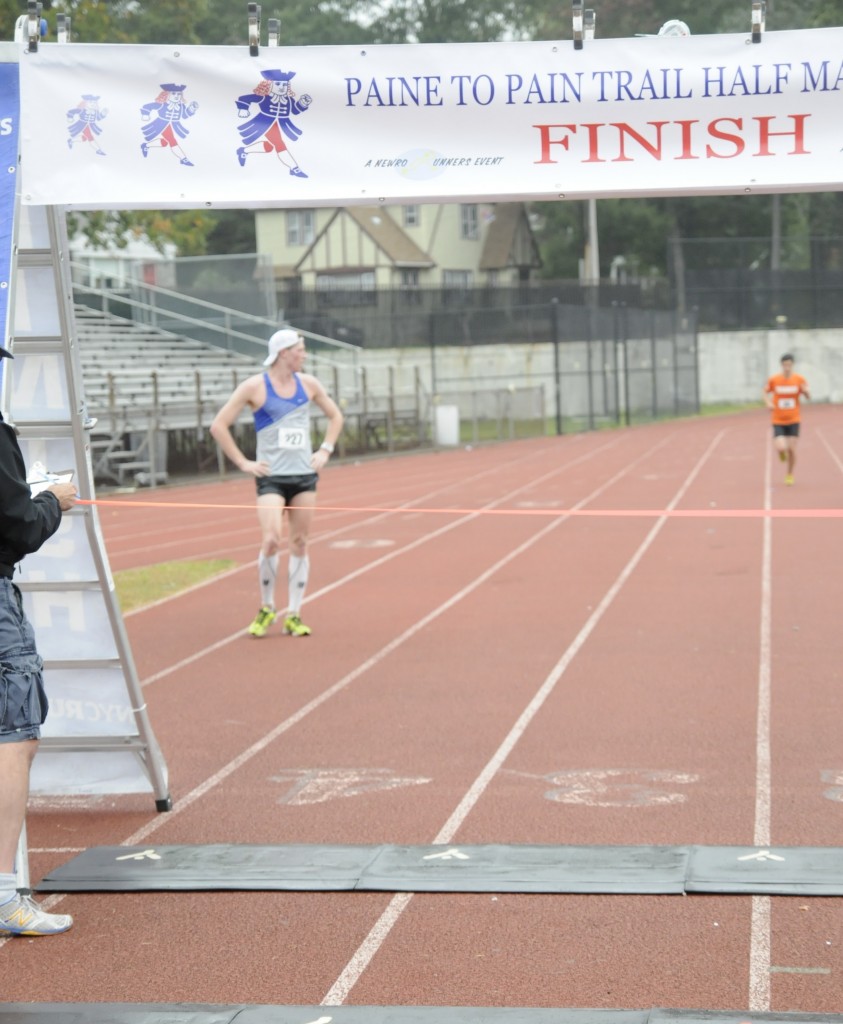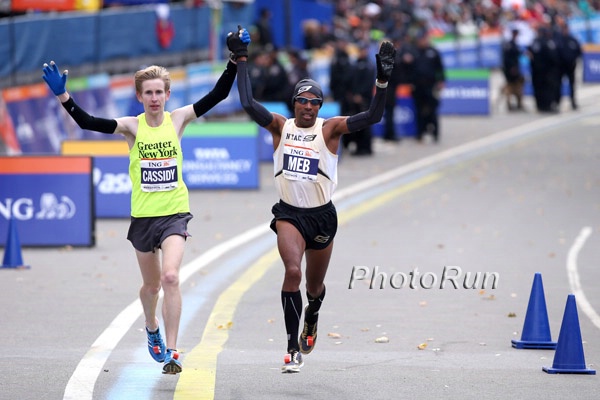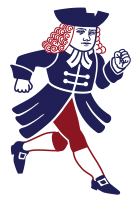 I’m going to weave together six different stories today, some dealing with running, some with lawyering, but all leading to the same place. Trust me on this, I have a point to make.
I’m going to weave together six different stories today, some dealing with running, some with lawyering, but all leading to the same place. Trust me on this, I have a point to make.
We start on October 6th at the finish line of the Paine to Pain Trail Half Marathon, where Matt Collins — a person you’ve never heard of, and in a story that’s never appeared anyplace but a blog — stopped dead in his tracks just steps from the finish line. And he waited for #2 and #3 to pass him before he walked across the finish line. It seemed that the guy who ultimately won had taken a wrong turn in the woods and was followed by #2. Collins was 3rd at the time, called them back as he took the lead, and then waited at the finish for the other guys to finish ahead of him.
On a very popular running forum, Collins was excoriated by some for not having grabbed first place. But this is not a race with a cash prize; people run for fun, health and personal glory. He didn’t feel like he deserved it as he wasn’t the fastest runner that day, and that was good enough for him. While the stage was rather small given the number of onlookers, a few people appreciated this act of extraordinary sportsmanship.
Move on to story 2 and the NYC Marathon — a vastly bigger stage — and another runner you’ve have never heard of, Mike Cassidy. He’s what we call a “sub-elite.” He’ll blow the socks off you in any regional race, but isn’t Olympic caliber. He’s not the guy who gets the sponsorships. That would be a guy like his hero, Meb Keflezighi – 2004 Olympic silver medalist and 2009 winner of the NYC Marathon.
Meb — he’s always just Meb — was having an off day due to a series of injuries. And when elite athletes have an off day they usually just drop out so that they can come back sooner in another race and not risk further injury. But Meb kept going. And Cassidy caught up to his hero three miles before the dramatic Central Park finish.
 Look at the picture to your left. As Cassidy recounts in extraordinary race report:
Look at the picture to your left. As Cassidy recounts in extraordinary race report:
This is the type of moment you only dream about. The scene had played out in my mind countless times before: me, having the race of my life, gracefully passing Meb in Central Park en route to a stunning victory. It’s one of those wild fantasies that get you through the solitary 7 am 10 milers.
As I eased up on his shoulder, I looked over and said, “Let’s go Meb.”
He responded, promptly picking up his pace and we entered Central Park at 90th Street, shoulder to shoulder. The next three miles were the most surreal I have ever experienced. “Let’s finish this together,” he said.
In recounting the experience of running with Meb through the closing miles, jammed with screaming fans, he said:
It was like getting to play basketball with Michael Jordan. Only it was Game 7 of the NBA Finals and he had just passed me the ball.
Why did Meb keep going? Once more from Cassidy’s amazing write-up:
It was readily apparent that all the stories I’d heard about Meb’s remarkable attitude were true.
As we entered Central Park at Columbus Circle, I turned to Meb and told him as much. “It’s an honor to run with you,” I said.
His response is something I’ll never forget.
“No,” he said. “Today is not about us. It’s about representing New York. It’s about representing Boston. It’s about representing the USA and doing something positive for our sport. We will finish this race holding hands.”
Meb knew. People were watching.
Now story 3, we turn to lawyering and back to the smaller stage. Last week I wrote about the death of the anonymous Editor of Blawg Review, who everyone knew simply as Ed. Ed. worked behind the scenes. He was known, at least in this digital incarnation, only to a group of law bloggers and some of their readers. But he influenced us and how we wrote, and created a forum in which to celebrate quality, and not the marketing pablum that some try to pass off as blogging. Ed. was respected for what he was doing in his Blawg Review project, as is evident from all the stories posthumously written about him. People were watching.
Now story 4: I wrote in unflattering terms the other day about the tactics a lawyer used when suing Red Bull for $85M, in a case dealing with the death of someone that drank the stuff while playing basketball. I was less than charmed about his decision to place a monetary amount in the complaint when that tactic is not permitted in New York. The headlines all dealt with the money, instead of dealing with the safety of the product. And when we talk about newspaper headlines, we are most assuredly back on the big stage. People were watching.
 Story 5: It came across social media like so many other viral videos do, this one dealing with how children reacted to same-sex marriage, by having them watch various same-sex marriage proposals. Everyone wanted to see how kids react. It’s been viewed, so far, over seven million times.
Story 5: It came across social media like so many other viral videos do, this one dealing with how children reacted to same-sex marriage, by having them watch various same-sex marriage proposals. Everyone wanted to see how kids react. It’s been viewed, so far, over seven million times.
But if you thought about it, it wasn’t really about the kids. It was about the parents, because kids mostly just mirror what the parental units do and say. If kids are accepting, you can bet the parents are also. If a kid is a raging bigot — regardless of whether it’s about sexual orientation, race or religion — you can place a pretty good bet where it came from. The stage inside your home is as small as it gets. But the kids are watching.
Story 6: I tried a case in September, and every so often a lawyer or two would filter in and out of the courtroom on unrelated business. Last week I got a call from one of them who’d seen one particular cross-exam, and he wanted a copy of the transcript to use to teach a class of students. An audience of one just grew. Someone was watching, other than those required to do so.
The Point: We don’t always know how big our audience is: It may be a few people standing around a finish line, or jammed sidewalks and national television for the NYC Marathon, or newspaper readers or “just” our kids. But people are always watching and listening (and I don’t just mean the NSA — “the only part of government that actually listens“).
When I select juries, I know that whatever opinions the 30 people sitting in the room are going to form about lawyers will be directly impacted by the few things they hear from us. In doing so, I am always confronted by the entrenched attitudes some folks have because of the conduct of lawyers and news stories that came before.
We cannot view our conduct in isolation as it oft times impacts others.
This is something to think about with each bit of marketing a lawyer does, with every interaction with a client or potential client, and any interaction with the press. People are watching. And listening. And it matters.



